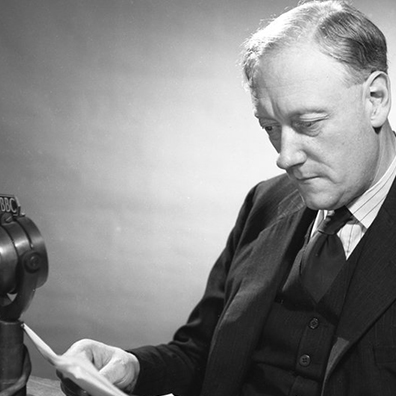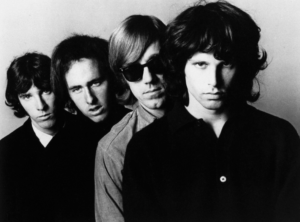
The South’s goodness in a
to-go cup for your tea
“Want some more tea hon?” Well, this is what I wanted to hear, but that was not happening. In fact, it was something completely different and it was putting the damper on my expectations for another glass of iced tea on a hot summer day.
After a year in the South I had a short break and was back in the Northeast. I had been in Birmingham working on a humanitarian project on behalf of an orphan from West Africa and now I had my first chance in twelve months to get back home. I use the word “home” as I am a Northerner by birth and upbringing and have spent a good chunk of my five plus decades on this earth in the climes above the Mason-Dixon Line. Even if I wanted to, it would be hard for me to pretend to be anything else than what I am.
I was no stranger to the South however. I had gone to college and served in the military there and have grown to appreciate its energy and its optimistic view of the future—something that stands in stark contrast to the pockets of despondency one finds in the Rust Belt.
Maybe it is good in some ways that we think that the United States of the 21st century is pretty much the same everywhere. Certainly quick travel and the instant communication of modern life have erased a wide swath of what we used to think of as cultural and regional differences. But I find that they do exist and while modernity might have winnowed down a good many of them, as a sort of recompense it highlights the best of those that remain.

Iced-Tea
The South’s hallmark
Sure there are the obvious differences such as accents—but accents are, if one listens carefully, varied all across the country so that is nothing new. Instead, the real differences are the subtle ones that reveal the personality and rhythms of the life beneath. So while we as Americans do pretty much the same things in our daily routines, the South has a special spark that reveals lives well led.
In 2013, I moth-balled my home in the North and decamped to Birmingham to help that orphan boy find a new life in the U.S. His path had been a sad one but by sheer chance a college friend, now living in Alabama, called me out of the blue. She opened the doors to jumpstart the project and soon, with no experience at all in the role, I was headed south to be a foster parent.
Through this one friend, I quickly discovered that I had many. Her friends in Birmingham wasted no time in lending a hand—which they did, not as President Kennedy advocated to take on tasks because they are hard, but rather because they viewed this project as worthwhile. Their efforts reacquainted me with words that I had thought had fallen into disuse; words like community and neighborhood and assistance and the very real meaning that they have in the South.
One of the afternoons while on my break I met a friend for lunch. We had a lot to talk about and one hour raced into two. The food was good and the surroundings pleasant—it was clear why the lunch crowd considered this an up and comer in the ranks of the local eateries. A fair assessment I thought…or at least until I was jolted out of my gastronomically induced reverie by something that never would have happened back in Birmingham.
At first I thought I was the victim of a practical joke—a set-up by my friend in cahoots with the waitress. It would have been quite the fitting prank if only it had been a prank.
The waitress was explaining to me that a second refill of my iced tea would be charged at an additional $2.25. Well, while two bucks and a quarter does not send one to the poor-house it was the principle of the thing. As she was speaking I felt as if the sounds coming out of her mouth were like those of the teacher in the Charlie Brown cartoons: wah wah wah wah wah — almost undecipherable.
We were talking about iced tea, weren’t we? Nothing more and nothing less than just a glass of tea that was, to boot, not even a super special rare blend from the tea-growing estates along the mighty Brahmaputra River in India’s northeast Assam region. No, it was the common tea that goes along with lunch. You can see why I thought it was a joke. Sadly it was not.
Not long thereafter, back in Birmingham, I was out to lunch with friends. As we paid the bill the server, unbidden, asked each of us if we would like a to-go cup. Yes, yes we would thank you. No charge of course and as I drove away I started to think that for the South there is a bit more in play here than just something to drink.
In 2012 Kevin Starr penned a short essay in the Stanford Social Review (8-word mission statement) that reminds us that if an organization cannot describe its purpose in eight words or less, then it probably isn’t sure what it is trying to do. We have all waded through tedious mission statements—embarrassing aren’t they for their lack of focus?

Kevin Starr
(Right), explains what a mission statement should be
What is nice is that Kevin’s insight spills over into a lot of areas of life—including the South and the to-go cup. I started to wonder if the mission statement, and even the entire essence of the South, can be nicely summed up in the question “A to-go cup for your tea?”
Faulkner, the glossy pages of Southern lifestyle magazines, college football on Saturdays, the Nashville sound, languid evenings with the offering of a cocktail, the Gulf Shores or the mountains of North Carolina, and Shelby Foote’s writings on battles long in the past are all imprints of the South’s unique place in the American landscape. Yet I, admittedly as a Northerner, find the root of it all in that question a to-go cup for your tea? Six simple words (no one in the South ever considers to-go as anything but one word!) that fit well within Starr’s limit for giving direction and meaning.
A group of friends from college, all Southerners, often instruct me not just on the ways of the South, but equally important, how to observe the ways of the South. They provide the context in the same way that you might have someone explain a Shakespearian play to you before you attend the performance. My friends freely share their thoughts for, to them, not to do so would be an unimaginable breach of their code of hospitality.
They agree though that the tea question does reflect the South in all its variegated beauty. Further, they loll around the heart of the idea and all that is implicit in it. By implicit they mean that of course a to-go cup is available and will indeed be proffered without having to track down the server to ask.
They know that implicit in the question is a properly cuffed pair of khakis even if just going out for a casual dinner. Implicit in the respect for elders that is still taught to children. Implicit in the debate as to how green the hickory should be for a good BBQ pit. Implicit in young people dressing up for a college football game. Implicit in being proud that good manners are the way things should be and that they will be both given and expected. Implicit in the courtesy of talking about money obliquely around those less fortunate so as not to come off in a vulgar manner. All of this in a simple question—the six words that speak volumes about the South.
One of those college friends challenged me to be a better observer by looking a little deeper yet. Sure all those things of Southern life and culture that I mentioned are implicit in the cup to-go question, but he maintains that it stems from an innate wish of Southerners to take care of others.
Though I can’t put my finger on it, I learned to agree with him for it was the citizenry of Birmingham that offered to help me
I aspire to fold these things into my life. As a Northerner, I know, however, that there will always be a few barriers for me to work around as I try to fully understand the South. For while I quickly latched onto the value of the to-go cup for its utility, it is what is inside that cup where I stumble. My friends have repeatedly, but gently, commented on my preference for unsweet tea. This, I found, is a rather delicate topic and should not be tackled carelessly. Many a good Southerner will maintain that there is a faint whiff of being un-American unless the tea is
By the way… at that restaurant back home? Since we took the table for two hours and it could not be “turned,” to use the parlance of the restaurant trade, we left the server a very handsome tip. Even though I had to pony up some extra cash for my tea it was not her fault that her manager had probably never eaten in the South!
In the meantime, stay average!
![]()







Here’s another profoundly southern expression in 8-words or less: “Where do y’all go to church?”
Your heart to help that orphan resonated like a cathedral bell with this Southerner, and may be the quid to our quo. I encounter transplants to this area who are not merely appalled, but driven to action by the expectation in the schools of the use of ma’am and sir. In my mind these are terms of respect, offered for reduction of friction to achieve smooth flowing civility. Their implicit need to fight against these honorifics, in my view, bespeaks an absence of gentility and suggests a needless elevation of self. The civility observed from Lincoln via Grant in allowing Confederate Soldiers to keep sidearms, baggage and horses to assist in safe and dignified return home, I believe, struck a harmonious chord. I am supposing the community in Birmingham easily recognized your efforts to restore the youngster’s dignity, and found that a noble flag to raise. Similar civility is exactly the “why” you can find unsweetened tea down here: none of us drink it! And I think you’ll be pressed to find a place charging over two dollars for tea. C’mon back down!
I knew I was a Southerner when I started ranking eateries based on how good the tea is.
As a recently retired hotel and resort General Manager who lived and worked in many states during the tenure of my career, I had the very unique pleasure of living and working in Mobile, Alabama several times during my career. Those years of experiences taught me about the people of Alabama, Mississippi, and Louisiana resulting in my ultimate affection and respect for the hundreds of individuals who I met and spent time with over the years. I respect their culture, mannerisms, honesty, and most of all their unselfish willingness to help others. I have come to the understanding that one of the main difference between the mannerism of a Southern and a Northerner is that a Southern will be straightforward and honest with their responses during communications, whereas most Northerners will not be that openly honest with their responses. Hence, one generally always knows exactly where they stand with Southerners. That is a comfortable, refreshing, and very enjoyable attribute with the Southern way of living!
I, too, like unsweet tea — not even Splenda. I don’t like sweet potatoes either, & I’m about as Southern as they come. Long ago I lived in N.J. NOBODY likes NJ — except me! I loved it there. Is it possible I’m some sort of alien from another planet?
8 words or less Southern expression: Y’all come to see us.
Often after folks are leaving it was said as: Y’all come back, yo’hear!?
Believe the express is : “Yall come back, Now, ya hear?
An opener for many a conversation : How’s yourmamanthem? Then there’s “It’s commin a storm”. I hate to get caught at a “grow old light” (long traffic light). Very colorful phrases down here.